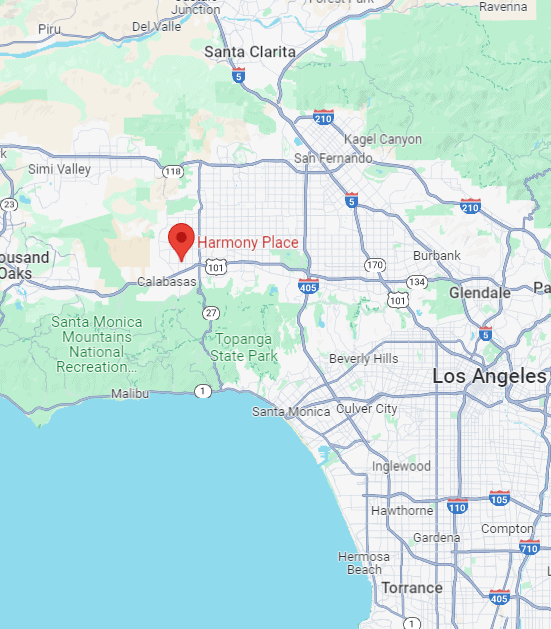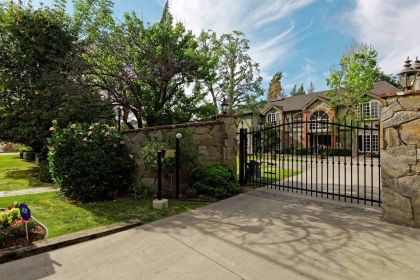Dialectical Behavioral Therapy in Los Angeles, CA
The admissions process for dialectical behavior therapy in Los Angeles begins with a private consultation to understand your mental health needs and treatment goals. During this initial intake, a licensed clinician will evaluate your symptoms, discuss your background, and determine whether DBT is the most effective approach for your recovery. If substance use or co-occurring disorders are present, the team may also recommend medical detox or additional addiction therapeutic support.
Once your assessment is complete, our admissions team will review your medical history, verify insurance coverage, and explain available treatment options in detail. After acceptance into a DBT program, you’ll receive a customized plan that outlines your therapy schedule, session structure, and personal goals. From your first phone call through ongoing treatment, Harmony Place ensures that every part of the admissions process is compassionate, transparent, and designed to set you up for long-term healing.
What is Dialectical Behavioral Therapy (DBT)?
Dialectical behavioral therapy (DBT) is designed to help you manage emotions, cope with stress, and improve relationships. At Harmony Place Drug and Alcohol Treatment, our DBT program combines individual therapy and skills training to teach you how to balance acceptance and change. Dialectical behavioral therapy (DBT) at Harmony Place Addiction Recovery Center in Los Angeles focuses on six main points.
What are the six main points of dialectical behavior therapy? They are – mindfulness, distress tolerance, emotional regulation, interpersonal effectiveness, walking the middle path, and self-management. Our DBT program helps you develop skills to help manage emotions, cope with stress, improve relationships, and foster emotional stability and a better quality of life. Participating in our DBT program will teach you practical skills to handle life’s challenges more effectively. Our therapists provide a supportive environment where you can develop healthier behaviors and thought patterns. If you’re seeking mindfulness-based therapy in Los Angeles, contact Harmony Place to learn more about our programs and verify your insurance coverage.
Stats and Info on DBT in Los Angeles
- Out of 817 substance use treatment facilities in California, 540 offered Dialectical Behavioral Therapy (DBT), according to the 2022 National Substance Use and Mental Health Services Survey by the Substance Abuse and Mental Health Services Administration (SAMHSA).
- These 817 facilities served 121,725 clients in inpatient, residential, outpatient, or partial hospitalization/day treatment programs
- A study on the efficacy of DBT for adolescents who were at high risk for suicide found that out of 173 participants, 90.3% treated using DBT had no suicide attempts, 56.9% had no self-injury incidents, and 54.2% experienced no self-harm
- 75.6% of study participants completed their DBT treatment
How Does DBT Help With Addiction?
Dialectical Behavior Therapy (DBT) helps individuals struggling with addiction by addressing the emotional and behavioral roots of substance use. Through evidence-based techniques, clients learn how to manage emotions, reduce impulsive actions, and develop healthier responses to stress and cravings. This balance between acceptance and change helps individuals break free from destructive cycles and build a stronger foundation for recovery.
DBT teaches practical skills that make lasting recovery possible. Participants learn to recognize and manage emotional triggers instead of turning to drugs or alcohol for relief. Mindfulness and distress tolerance skills help individuals pause before reacting to cravings, while emotional regulation techniques build self-control and clarity. The therapy also emphasizes improving relationships through better communication and boundary-setting, creating a supportive environment that reinforces sobriety.
At Harmony Place, our DBT in Los Angeles, integrates these methods to help clients develop confidence, emotional stability, and resilience. By combining behavioral therapy with compassionate clinical care, we empower individuals to overcome addiction and sustain long-term recovery in a trusted, healing environment.
Examples of Practices Used by a DBT Therapist in Los Angeles
Dialectical Behavior Therapy (DBT) uses structured techniques to help individuals manage emotions, reduce impulsive behaviors, and support recovery from addiction. Common DBT practices include:
-
Mindfulness Exercises: Focusing on the present moment to increase awareness of thoughts, emotions, and cravings without judgment. Examples include breathing exercises, guided meditation, and body scans.
-
Distress Tolerance Skills: Learning to cope with stressful or triggering situations without using substances. Techniques include self-soothing strategies, distraction, and radical acceptance.
-
Emotional Regulation Techniques: Identifying and understanding intense emotions, reducing vulnerability to emotional triggers, and practicing healthy ways to express feelings.
-
Interpersonal Effectiveness Skills: Building healthy communication skills, setting boundaries, and maintaining supportive relationships while managing conflict effectively.
-
Diary Cards and Tracking: Recording emotions, triggers, and behaviors daily to identify patterns and monitor progress.
-
Chain Analysis: Examining events leading up to a relapse or high-risk situation to understand triggers and implement preventive strategies.
-
Behavioral Homework Assignments: Practicing DBT skills outside therapy sessions to reinforce learning and improve real-world coping.
These practices equip individuals with practical tools to manage cravings, handle emotional stress, and maintain long-term recovery.
Signs You Should Consider DBT Treatment
Dialectical Behavior Therapy (DBT) can be highly effective for individuals struggling with addiction, especially when emotional regulation and coping skills are challenges. You may benefit from DBT if you notice any of the following signs:
- Frequent intense emotional outbursts: Difficulty managing anger, sadness, or anxiety that leads to impulsive behaviors.
- Repeated relapse despite treatment: Struggling to maintain sobriety even after completing rehab or other therapy programs.
- Impulsive or self-destructive behaviors: Engaging in risky actions such as unsafe substance use, self-harm, or unsafe decision-making.
- Difficulty handling stress or cravings: Feeling overwhelmed by triggers or stressors and using substances to cope.
- Troubled relationships: Frequent conflicts, boundary issues, or difficulty communicating effectively with family, friends, or coworkers.
- Co-occurring mental health conditions: Experiencing depression, anxiety, PTSD, or borderline personality disorder alongside addiction.
- Feeling stuck in recovery: Difficulty progressing despite wanting to change and trying other treatments.
If these signs resonate, DBT may help by providing structured skills for emotional regulation, distress tolerance, mindfulness, and interpersonal effectiveness, all of which support long-term recovery.
How Effective is DBT?
Dialectical Behavior Therapy (DBT) has been shown to be effective for treating addiction, particularly when combined with other therapies or medication-assisted treatment. Its structured approach helps individuals manage emotions, reduce impulsive behaviors, and develop coping skills that support long-term recovery.
Research Findings:
- Studies indicate DBT can significantly reduce substance use and relapse rates for people with co-occurring mental health conditions.
- DBT is effective in improving emotional regulation, decreasing self-harm behaviors, and enhancing overall mental health, which indirectly supports sustained sobriety.
Programs that integrate DBT with outpatient or inpatient rehab have shown higher engagement and better adherence to treatment plans.
Considerations:
- DBT requires active participation and commitment, and results may vary depending on individual motivation and consistency.
- Effectiveness improves when combined with professional medical care, peer support, and comprehensive addiction treatment programs.
Overall, DBT is a proven and evidence-based approach that offers practical skills and strategies, making it a valuable tool in addiction recovery for many individuals.
Who is DBT Treatment Best For?
DBT is a highly structured therapy that can be particularly effective for individuals struggling with addiction, especially when combined with other treatments. It is best suited for:
- Individuals with emotional dysregulation: People who have difficulty managing intense emotions that often trigger substance use.
- Those with impulsive behaviors: DBT helps reduce impulsivity, which is common in addictive patterns.
- People with co-occurring mental health conditions: Such as borderline personality disorder, depression, anxiety, or PTSD.
- Individuals with repeated relapses: Those who have struggled to maintain sobriety despite previous treatments.
- People willing to engage actively in therapy: DBT requires commitment to attending sessions, practicing skills, and completing homework assignments.
- Those seeking long-term coping strategies: DBT focuses on sustainable behavior change and relapse prevention rather than short-term fixes.
By targeting both emotional and behavioral aspects of addiction, DBT provides tools that help individuals maintain recovery and build healthier relationships with themselves and others.
Pros & Cons of DBT Treatment
Dialectical Behavior Therapy (DBT) offers many benefits for individuals struggling with addiction, but it also has some limitations. Understanding both can help someone decide if it is the right approach.
Pros:
- Effective for emotional regulation: Helps individuals manage intense emotions that often trigger substance use.
- Reduces impulsive behaviors: Teaches mindfulness and coping strategies to prevent relapse.
- Addresses co-occurring disorders: Especially helpful for those with mental health conditions like borderline personality disorder, anxiety, or depression.
- Structured and skill-based: Offers clear tools and techniques for managing cravings, stress, and relationships.
- Supports long-term recovery: Focuses on sustainable behavior change and relapse prevention.
Cons:
- Time commitment: DBT often requires multiple weekly sessions and homework, which can be challenging for some individuals.
- Intensity: The therapy can be emotionally demanding, especially when confronting difficult feelings or past trauma.
- Availability: Access to certified DBT therapists or programs may be limited in some areas.
- Cost: DBT can be expensive, particularly if insurance does not cover it fully.
- Not a standalone solution: DBT is most effective when combined with other treatments such as medical care, medication-assisted treatment, or inpatient/outpatient rehab programs.
How Long Does the DBT Treatment Process Take?
The duration of dialectical behavioral therapy (DBT) treatment can vary. Typically, DBT involves a structured approach that may span several months to a year or longer. Initial phases often focus on developing foundational skills like mindfulness, distress tolerance, and emotion regulation, which may take several weeks to months to master.
Advanced phases may involve ongoing individual therapy sessions and skills practice to reinforce learned techniques and address specific goals related to mental health management. Treatment duration also depends on factors like the severity of symptoms, personal progress, and therapeutic goals set with your DBT therapist. Regular assessments and adjustments will ensure you receive effective and personalized care throughout the process.
Are There Differences Between Cognitive Behavioral Therapy (CBT) and Dialectical Behavior Therapy (DBT)?
There are significant differences between cognitive behavioral therapy (CBT) and dialectical behavior therapy (DBT). While both therapies focus on changing negative thought patterns, DBT incorporates strategies for emotional regulation, distress tolerance, and interpersonal effectiveness, making it particularly effective for individuals with borderline personality disorder.
In the debate of DBT vs CBT, CBT primarily targets the relationship between thoughts, feelings, and behaviors, emphasizing cognitive restructuring. In contrast, DBT adds a component of dialectical thinking, balancing acceptance and change, and includes mindfulness practices. This will help individuals manage intense emotions and improve relationships.
DBT integrates mindfulness, acceptance-based strategies, and cognitive-behavioral techniques. It emphasizes distress tolerance and interpersonal effectiveness to address emotional dysregulation and relationship difficulties. DBT often involves individual therapy and skills training.
In contrast, CBT primarily focuses on identifying and challenging negative thought patterns and behaviors to modify cognitive distortions and improve mood and behavior. It typically involves structured sessions targeting specific symptoms or issues, emphasizing cognitive restructuring and behavioral activation. Both therapies are evidence-based and effective for treating various mental health conditions, but DBT’s emphasis on acceptance, mindfulness, and interpersonal skills distinguishes it from traditional CBT approaches.
We Will Check Your Insurance
Does Health Insurance Cover DBT in Los Angeles, CA?
Most commercial health insurance plans cover DBT in Los Angeles, though the extent of coverage depends on your individual policy and provider network. Because dialectical behavior therapy in Los Angeles is recognized as an evidence-based treatment for conditions like borderline personality disorder (BPD), depression, anxiety, and addiction, many plans include benefits for this level of care.
At Harmony Place, we work directly with insurance providers to make accessing DBT therapy in Los Angeles as seamless as possible. Our admissions team can help you verify your benefits, explain what’s included under your plan, and determine your options for DBT programs that align with your needs. Contact Harmony Place today to confirm your insurance coverage and begin your path toward recovery with trusted, compassionate care in Los Angeles, CA.
How Much Does DBT Cost With Health Insurance?
The cost of dialectical behavioral therapy (DBT) with health insurance in Southern California varies depending on your insurance plan and provider. Typically, DBT sessions are covered by many commercial health insurance plans as part of mental health benefits. Co-payments or co-insurance amounts may apply, usually between $20 and $50 per session.
Some insurance plans require you to meet a deductible before coverage begins. Verifying coverage details with your insurance provider and DBT clinic is important to understand your financial responsibility. Harmony Place and other DBT providers in Southern California often work with various insurance companies to facilitate coverage, ensuring accessible treatment options for individuals seeking DBT counseling and therapy.
How Much Does DBT Cost Without Health Insurance in LA?
The cost of dialectical behavioral therapy (DBT) without health insurance in greater Los Angeles can vary depending on your provider and the service you receive. Out-of-pocket costs for DBT sessions can range from $100 to $300 per session. Some facilities offer sliding-scale fees based on income or financial need, which can lower addiction therapy costs for those paying privately.
Group therapy sessions or intensive outpatient programs (IOPs) may be more affordable than individual therapy. It’s advisable to contact DBT providers directly to inquire about their fee schedules, payment options, and any available discounts or financial assistance programs. Researching multiple providers and comparing costs can help you find affordable DBT counseling and therapy options that fit your budget.
What Are Common Disorders Treated With Dialectical Behavioral Therapy in Los Angeles?
Dialectical behavioral therapy (DBT) is used to treat various mental health disorders in the greater Los Angeles area. Common disorders include borderline personality disorder (BPD), depression, anxiety, eating disorders, substance abuse, and PTSD. DBT helps people develop skills to manage emotions and improve their overall well-being. Here are just a few examples of the conditions DBT can address.

DBT for Bipolar Disorder
Dialectical behavioral therapy (DBT) can be highly effective in managing bipolar disorder. At Harmony Place Addiction Recovery in Los Angeles, our DBT program helps you balance mood swings and develop emotional regulation skills. DBT combines therapy and group skills training to teach you emotion regulation skills and how to reduce impulsivity and improve interpersonal communication.
By focusing on mindful awareness, distress tolerance, emotional regulation, and interpersonal effectiveness, DBT provides practical tools to navigate bipolar disorder. Our experienced therapists support you in creating a more stable and fulfilling life.
DBT for ADHD
Dialectical behavioral therapy (DBT) can be beneficial for managing ADHD. At Harmony Place Addiction Rehab Center in Los Angeles, our DBT program helps you develop skills to improve focus, manage impulsivity, and regulate emotions. DBT for ADHD combines individual therapy and group skills training to provide practical tools for managing the symptoms of ADHD.
DBT emphasizes mindfulness, distress tolerance, emotional regulation, and interpersonal effectiveness to help you enhance attention, reduce impulsive behaviors, and improve relationships. Our experienced therapists also help you create better organization and time management strategies.
DBT for PTSD
Dialectical behavioral therapy (DBT) at Harmony Place offers effective strategies for managing PTSD. Our DBT program integrates individual therapy and skills training to help you cope with traumatic experiences and their aftermath. DBT focuses on mindfulness, distress tolerance, emotional regulation, and interpersonal effectiveness to address PTSD symptoms such as flashbacks, hypervigilance, and emotional numbing.
By learning skills to ground yourself in the present, manage intense emotions, and improve relationships, DBT empowers you to regain a sense of control and stability. Our compassionate therapists guide you through processing trauma and developing adaptive coping mechanisms.
BPD – Borderline Personality Disorder
Dialectical behavioral therapy (DBT) is particularly effective for treating borderline personality disorder (BPD). Dialectical behavior therapy for borderline personality disorder combines therapy and skills training to help you manage emotions, improve your relationships, and develop a more stable sense of self. DBT focuses on core mindfulness, distress tolerance, emotional regulation, and interpersonal effectiveness.
By learning these skills, you can reduce impulsive behaviors, address self-destructive tendencies, and navigate life’s challenges more effectively. Our therapists provide a supportive environment where you can explore underlying issues and develop healthier coping strategies. If you’re seeking DBT treatment for BPD in Los Angeles, contact Harmony Place to learn more about how our programs can help you achieve greater self-validation, emotional stability, and well-being.
Anxiety Disorder
Dialectical behavioral therapy (DBT) is an effective approach for managing anxiety disorders. DBT combines individual therapy sessions and skills training to help you learn to cope with and reduce anxiety symptoms. DBT for anxiety focuses on mindfulness, distress tolerance, emotional regulation, and interpersonal effectiveness, providing practical tools for self-soothing to manage worry, fear, and stress.
Developing these skills can increase your resilience and improve your crisis survival skills. Your therapist will work with you to identify triggers, challenge negative thought patterns, and build healthier coping mechanisms.
Depression
Dialectical behavioral therapy (DBT) is a valuable treatment option for managing depression at Harmony Place Addiction Recovery Center in LA. In DBT for depression, you will attend individual therapy and skills training to help you develop coping skills for symptoms of depression. DBT emphasizes mindfulness, distress tolerance, emotional regulation, and interpersonal effectiveness, providing practical tools to enhance mood and resilience.
Learning these skills helps you improve your ability to manage negative thoughts, increase self-awareness, and strengthen relationships. Our therapists support you in exploring underlying issues contributing to depression and creating a personalized recovery plan.
OCD – Obsessive Compulsive Disorder
Dialectical behavioral therapy (DBT) offers effective strategies for managing obsessive compulsive disorder (OCD). At Harmony Place Addiction Recovery Center in SoCal, our DBT program helps you gain control over obsessive thoughts and compulsive behaviors. DBT for OCD focuses on mindfulness, distress tolerance, emotional regulation, and interpersonal effectiveness, providing practical tools to interrupt OCD patterns and reduce anxiety.
These skills can increase your ability to resist compulsions, manage triggers, and improve your overall quality of life. Our therapists collaborate with you to develop personalized strategies tailored to your specific OCD symptoms and challenges.
Request a 100% Confidential Free Assessment

Finding Treatment Centers That Offer DBT Programs in Los Angeles
Harmony Place offers comprehensive dialectical behavior therapy (DBT) in Southern California, providing specialized care for individuals struggling with emotional regulation, distress tolerance, and interpersonal challenges. Our DBT programs incorporate evidence-based techniques, including mindfulness, skills training, and individualized therapy, to help clients build healthier coping strategies and long-term resilience.
If you’re searching for a DBT treatment center in Los Angeles, our facilities provide a compassionate, healing environment where you can develop the skills necessary for lasting recovery. Call us at (855) 652-9048 to learn more about our DBT in Los Angeles, and take the first step toward a more balanced and fulfilling life.
How to Find Dialectical Behavioral Therapy in Los Angeles County
Finding dialectical behavioral therapy (DBT) in Los Angeles County involves exploring various mental health clinics, treatment centers, and private practices that offer DBT services. DBT is recognized for its effectiveness in treating conditions like borderline personality disorder (BPD) and can be found through online searches, referrals from healthcare providers, or contacting local mental health organizations for recommendations.
- Online Search: Use keywords like “DBT therapy Los Angeles,” “Dialectical Behavioral Therapy clinics LA,” “DBT counseling Los Angeles,” or “DBT treatment centers near me.”
- Referrals: Ask your primary care doctor or therapist for recommendations on DBT providers.
- Check Provider Directories: Use online directories such as Psychology Today, Zocdoc, or your insurance provider’s website to search for DBT therapists or clinics.
- Contact Local Mental Health Organizations: For referrals and resources, contact organizations like NAMI (National Alliance on Mental Illness) Los Angeles or county mental health departments.
- Read Reviews: Look for reviews and testimonials from former patients on Google or healthcare provider review sites to gather feedback on DBT providers in your area.
Harmony Place
23041 Hatteras St.
Woodland Hills, CA 91367
Harmony Place East
22913 Burbank Blvd.
Woodland Hills, CA 91367
Valley Restoration Center
22900 Ventura Blvd, STE 314,
Woodland Hills, CA 91364
Dialectical Behavior Therapy (DBT), What Is It Used For?
Dialectical behavior therapy (DBT) is a versatile treatment method used for various mental health challenges. It addresses conditions such as depression disorders, anxiety, PTSD, eating disorders, substance abuse, and more. This approach integrates behavioral therapy techniques with mindfulness practices to help you develop coping skills and emotional regulation and improve interpersonal relationships. Here are a few of the ways DBT is used.
Mindfulness in Early Career Stages
Dialectical Behavioral Therapy (DBT) and mindfulness techniques can be invaluable in early career stages. They offer practical tools to manage stress and foster personal growth. DBT integrates mindfulness with cognitive-behavioral strategies, helping you develop skills like emotional regulation and effective communication.
Practicing mindfulness, such as mindful breathing or grounding exercises, can enhance focus, reduce anxiety, and improve decision-making under pressure. These practices promote self-awareness and resilience, which are crucial for navigating challenges and building a successful career. Incorporating DBT’s mindfulness-based approaches into your routine can cultivate a balanced approach to work, enhance productivity, and support your overall well-being as you progress in your career journey.
Dialectical Approaches to Mental Health
Dialectical behavioral therapy (DBT) uses dialectical approaches to mental health, integrating acceptance and change principles to foster holistic well-being. DBT emphasizes mindfulness, distress tolerance, and emotion regulation skills, offering practical tools to manage challenges effectively. Applying dialectical methods allows you to balance conflicting thoughts and emotions, improve self-awareness, and enhance interpersonal relationships.
DBT’s dialectical perspective encourages you to embrace both your strengths and areas for growth, promoting resilience and adaptive coping strategies. Whether managing anxiety, depression, personality disorders, or other mental health issues, DBT’s dialectical approaches empower you to navigate complexities and achieve sustainable emotional stability and fulfillment in your life.
Strategies for Regulating Emotions
Dialectical behavioral therapy (DBT) offers effective strategies for regulating emotions, which is crucial for maintaining mental well-being. DBT emphasizes mindfulness techniques to increase awareness of emotional triggers and responses. By practicing mindfulness, such as observing thoughts without judgment or focusing on the present moment, you can manage intense emotions more effectively.
DBT teaches distress tolerance skills to help you navigate crises without escalating negative emotions. These skills include self-soothing activities and creating mental space to think before reacting impulsively. Additionally, DBT fosters emotion regulation skills to identify and change harmful emotional patterns, promoting healthier responses to stressors. By integrating these strategies into your daily life, DBT empowers you to achieve greater emotional stability and resilience, giving you a better quality of life.
Behavioral Techniques for Coping and Enhancing Well-Being
Incorporate dialectical behavioral therapy (DBT) behavioral techniques into your routine to enhance coping skills and overall well-being. Practice mindfulness daily to increase awareness of thoughts and emotions without judgment. Use distress tolerance skills like distraction techniques or self-soothing activities during stressful moments to manage intense emotions effectively. Engage in behavioral activation by scheduling enjoyable activities to boost mood and motivation.
Develop interpersonal effectiveness by learning assertiveness and communication skills to improve relationships. Set and achieve small, realistic goals to foster a sense of accomplishment and build confidence. By consistently applying these DBT strategies, you can cultivate resilience, reduce emotional distress, and enhance your quality of life.
Developing an Interpersonal Effectiveness Mindset
Developing an interpersonal effective mindset through dialectical behavioral therapy (DBT) involves learning to assert your needs while respecting others’ boundaries. Practice active listening and assertiveness to express yourself clearly and maintain healthy relationships. Use DEAR MAN (Describe, Express, Assert, Reinforce, Mindful, Appear confident, Negotiate) to negotiate conflicts constructively.
Develop empathy and understanding to strengthen connections with others. Set boundaries and learn to say no when necessary to prioritize your well-being. Integrating these DBT principles into your interactions allows you to confidently navigate social situations, cultivate meaningful relationships, and enhance your interpersonal effectiveness and overall satisfaction.
Building Resilience Through Distress Tolerance
Building resilience through distress tolerance in dialectical behavioral therapy (DBT) involves learning skills to navigate difficult situations without worsening them. Practice mindfulness techniques like deep breathing and grounding exercises to stay present and calm during distressing moments. Use distraction strategies such as engaging in activities or focusing on positive thoughts to shift your focus away from overwhelming emotions.
Develop self-soothing techniques like listening to calming music or taking a warm bath to provide comfort during distress. Practice radical acceptance to embrace reality without judgment to reduce emotional suffering and increase tolerance for uncertainty. By applying these DBT principles consistently, you can strengthen your ability to cope with adversity, bounce back from setbacks, and build resilience in life’s challenges.
Alternatives to DBT Programs
While DBT is effective for many individuals struggling with addiction, other therapies and treatment approaches can also support recovery. Common alternatives include:
- Cognitive Behavioral Therapy (CBT): Focuses on identifying and changing negative thought patterns that contribute to substance use and relapse.
- Motivational Interviewing (MI): Helps individuals increase motivation to change by exploring ambivalence and building commitment to recovery.
- 12-Step Programs: Peer support groups such as Alcoholics Anonymous (AA) or Narcotics Anonymous (NA) provide community, accountability, and structured steps toward sobriety.
- Contingency Management: Uses positive reinforcement, such as rewards, to encourage abstinence and treatment adherence.
- Acceptance and Commitment Therapy (ACT): Encourages acceptance of difficult thoughts and feelings while committing to actions aligned with personal values.
- Mindfulness-Based Relapse Prevention (MBRP): Combines mindfulness practices with relapse prevention strategies to improve awareness and coping skills.
- Family Therapy: Addresses family dynamics and provides support to loved ones, improving overall recovery outcomes.
Each approach offers unique benefits, and in many cases, combining therapies can enhance effectiveness by addressing different aspects of addiction, mental health, and behavior.
Evidence-Based Addiction Therapies at Harmony Place
Harmony Place integrates a variety of evidence-based therapies to promote healing and relapse prevention. Our services include cognitive and dialectical behavioral therapies, motivational enhancement, and both individual and group therapy. Explore the links below to discover how these approaches can support your recovery journey in Los Angeles.
What Is the Admissions Process for Dialectical Behavioral Therapy in Los Angeles, CA?
The same-day admissions process for DBT in Los Angeles begins with a confidential consultation and assessment at Harmony Place, where our compassionate team will guide you through every step. During this initial assessment, a licensed clinician will evaluate your needs, discuss your goals, and determine whether dialectical behavior therapy in Los Angeles is the right fit for your recovery journey. If addiction is present, we may also discuss options for medical detox and additional therapeutic support.
As part of your intake, our staff will review your medical and mental health history, verify insurance coverage, and explain your personalized DBT program details. Once admitted, you’ll receive a customized treatment plan that outlines session frequency, therapy techniques, and recovery milestones. At Harmony Place, our goal is to make starting DBT therapy in Los Angeles seamless and supportive—helping you or your loved one take the first step toward meaningful healing.
Begin Your DBT Therapy in Los Angeles at Harmony Place
Healing starts with the right support—and at Harmony Place, our DBT in Los Angeles is designed to help you or your loved one take the first step toward lasting recovery. Our compassionate team of DBT therapists in Los Angeles provides personalized, judgment-free care to promote healing and emotional stability.
Whether you’re managing addiction, co-occurring disorders, or emotional dysregulation, our evidence-based dialectical behavior therapy in Los Angeles can guide your journey toward a healthier life. Contact Harmony Place today to verify your insurance, speak with a DBT therapist in Los Angeles, and discover how our comprehensive programs can help you achieve lasting recovery in a safe, supportive environment.


















